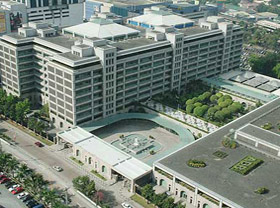
ADB rebates rate for libor-based loans
From 1 January to 30 June 2009, the rebate for US dollar LIBOR-based loans is 0.35%, up from 0.33% rebate in the previous six-month period. For Japanese yen LIBOR-based loans, the rebate is 0.38%, down from 0.39%. For LIBOR-based loans converted from the pool-based loans, the rebate will be 0.08% for US dollar loans, and 0.11% for Japanese yen loans.
The rebates reflect the average cost of borrowings dedicated to LIBOR-based loans in their respective currencies from 1 July to 31 December 2008.
Separately, ADB has revised its lending rates for both its US dollar and Japanese yen pool-based single currency loans. From 1 January to 30 June 2009, the lending rate for US dollar pool-based loans will decrease from 5.64% to 5.03%. This reflects the average cost of borrowings for the pool of 4.63% per annum from 1 July to 31 December 2008 plus a spread of 0.40% per annum (this represents a lending spread of 0.60% less a waiver of 0.20%).
During the same period, the Japanese yen lending rate will decrease from 1.98% to 1.92%. This reflects the average cost of borrowings for the pool of 1.52% for Japanese yen from 1 July to 31 December 2008, plus a spread of 0.40% per annum (representing a lending spread of 0.60% less a waiver of 0.20%).
Meanwhile, the lending rate for hard-term Asian Development Fund (ADF) loans approved in 2009 is set at 1.60%, down from 3.15% last year. Hard-term ADF loans, similar to the hard-term window of the International Development Association, are provided to certain developing member countries that are eligible for both ADF loans and loans from ADB’s ordinary capital resources.